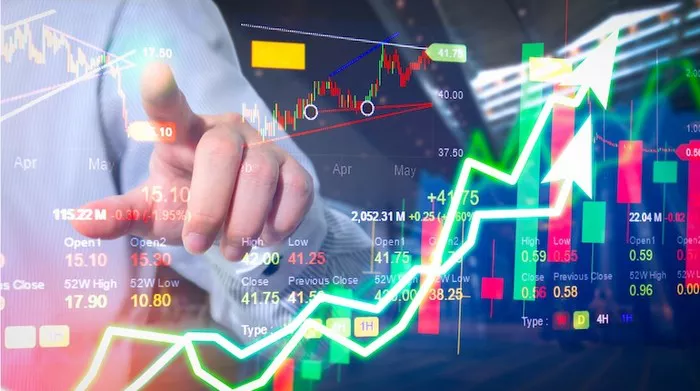The Dow Jones Industrial Average (Dow) serves as a barometer for the health of the U.S. stock market, with its movements captivating the attention of investors worldwide. Dow Jones futures trading offers a unique lens into the market’s immediate future, providing insights into investor sentiment and potential trends.
Exploring Dow Jones Futures Trading
Defining Dow Jones Futures: Dow Jones futures are financial contracts that enable traders to speculate on the future value of the Dow Jones Industrial Average. These contracts represent agreements to either buy or sell the Dow at a predetermined price on a specific date in the future.
Anticipating Market Sentiment: A defining feature of Dow Jones futures trading is its role as a crystal ball for market sentiment before the actual trading session commences. Movements in Dow Jones futures prices before the market opens offer valuable insights into how investors collectively perceive the market’s upcoming direction.
Market Insight and Flexibility: Dow Jones futures provide investors with the flexibility to adopt both bullish (anticipating market growth) and bearish (anticipating market decline) strategies. This versatility empowers traders to tailor their approaches to various market conditions.
What Influences Dow Jones Futures Trading?
Economic Indicators: Dow Jones futures movements are intrinsically linked to an intricate web of economic indicators. Key factors include GDP growth rates, inflation data, unemployment figures, and manufacturing activity. These indicators collectively shape the broader economic outlook.
Monetary Policy Shifts: The decisions of central banks, particularly the Federal Reserve, regarding interest rates and monetary policy can substantially impact Dow Jones futures movements. Alterations in interest rates can influence borrowing costs for consumers and companies, thus influencing overall market sentiment.
Corporate Earnings Performance: The financial health of companies listed in the Dow directly influences Dow Jones futures. Positive corporate earnings reports can trigger upward movements, reflecting strong corporate performance and heightened investor confidence.
Global Events and Geopolitics: Geopolitical events, such as trade negotiations, political tensions, and global conflicts, have far-reaching consequences that resonate through financial markets, contributing to Dow Jones futures movements.
Interpreting Dow Jones Futures Trading
Upward Movements: An increase in Dow Jones futures prices signifies positive market sentiment and suggests that investors anticipate an upward trajectory for the Dow when the market opens. Factors like favorable economic data, strong corporate earnings, and positive geopolitical developments can contribute to upward movements.
Downward Movements: Conversely, a decrease in Dow Jones futures prices indicates a bearish sentiment, implying that investors foresee a downward trend for the Dow upon market opening. Negative economic data, disappointing corporate earnings, and geopolitical uncertainties can lead to downward movements.
Magnitude of Movements: The magnitude of Dow Jones futures movements holds significance. Larger price shifts often indicate heightened market volatility, potentially reflecting significant shifts in investor sentiment.
Understanding Futures Contracts: Accurate interpretation of Dow Jones futures movements necessitates comprehension of futures contract terms, including contract size, expiration date, and the value of each contract point.
Implications for Investors and Traders
Investors: Long-term investors can benefit from interpreting Dow Jones futures movements as indicators of market sentiment. While short-term fluctuations may not significantly impact investors with a long-term horizon, understanding these movements can inform investment decisions.
Day Traders: Day traders actively engage with Dow Jones futures to capitalize on short-term price movements. Analyzing pre-market Dow Jones futures activity helps day traders anticipate potential intraday trends.
Hedgers: Entities such as corporations utilize Dow Jones futures to hedge against market volatility. By locking in prices in advance, they mitigate risks associated with uncertain market conditions.
Speculators: Speculators thrive on volatility. They engage with Dow Jones futures to profit from price fluctuations. Their strategies range from predicting market direction to betting on volatility itself.
Conclusion
Dow Jones futures trading holds a central place in the world of finance, offering insights into market sentiment, potential trends, and the interplay of economic and geopolitical factors. As investors, day traders, hedgers, and speculators navigate the intricacies of the market, Dow Jones futures serve as invaluable tools for informed decision-making. By deciphering movements, understanding influencing forces, and interpreting implications, market participants can harness the power of Dow Jones futures to navigate the ever-evolving landscape of financial markets with heightened insight and confidence.


